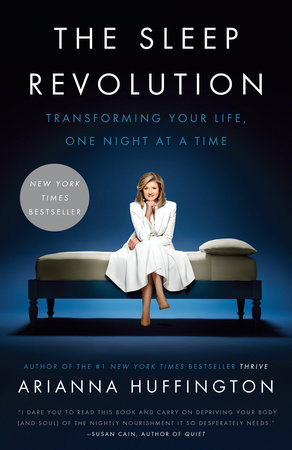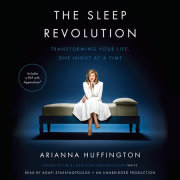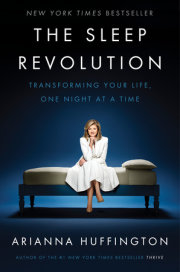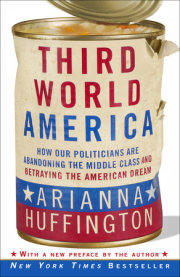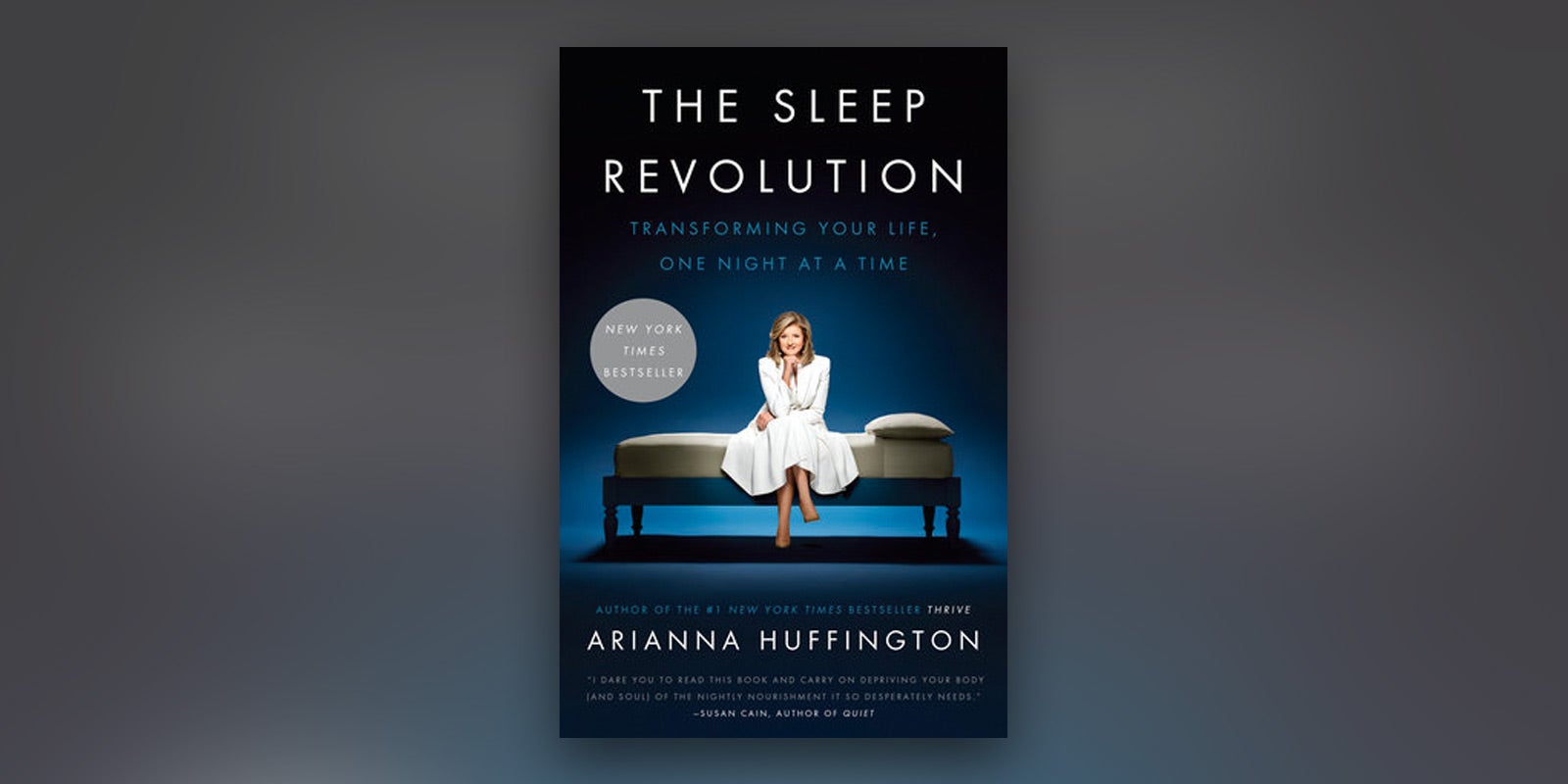1.OUR CURRENT SLEEP CRISISSarvshreshth Gupta was a first-year analyst at Goldman Sachs in San Francisco in 2015. Overwhelmed by the hundred-hour workweeks, he decided to leave the bank in March. He soon returned, though whether this was a result of social or self-inflicted pressure is still unclear. A week later, he called his father at 2:40 a.m. saying he hadn’t slept in two days. He said he had a presentation to complete and a morning meeting to prepare for, and was alone in the office. His father insisted he go home, and Gupta replied that he would stay at work just a bit longer. A few hours later, he was found dead on the street outside his home. He had jumped from his high-rise building.
Death from overwork has its own word in Japanese (karoshi), in Chinese (guolaosi), and in Korean (gwarosa). No such word exists in English, but the casualties are all around us. And though this is an extreme example of the consequences of not getting enough sleep, sleep deprivation has become an epidemic.
It is a specter haunting the industrialized world. Simply put: we don’t get enough sleep. And it’s a much bigger problem—with much higher stakes—than many of us realize. Both our daytime hours and our nighttime hours are under assault as never before. As the amount of things we need to cram into each day has increased, the value of our awake time has skyrocketed. Benjamin Franklin’s “Time is money!” has become a corporate-world mantra. And this has come at the expense of our time asleep, which since the dawn of the Industrial Revolution we have treated like some dull, distant relative we visit only reluctantly and out of obligation, for as short a time as we can manage.
But scientists are resoundingly confirming what our ancestors knew instinctively: that our sleep is not empty time. Sleep is a time of intense neurological activity—a rich time of renewal, memory consolidation, brain and neurochemical cleansing, and cognitive maintenance. Properly appraised, our sleeping time is as valuable a commodity as the time we are awake. In fact, getting the right amount of sleep enhances the quality of every minute we spend with our eyes open.
But today much of our society is still operating under the collective delusion that sleep is simply time lost to other pursuits, that it can be endlessly appropriated at will to satisfy our increasingly busy lives and overstuffed to-do lists. We see this delusion reflected in the phrase “I’ll sleep when I’m dead” has flooded popular consciousness, including a hit Bon Jovi song, an album by the late rocker Warren Zevon, and a crime film starring Clive Owen. Everywhere you turn, sleep deprivation is glamorized and celebrated: “You snooze, you lose.” The phrase “catch a few z’s” is telling: the last letter of the alphabet used to represent that last thing on our culture’s shared priority list. The combination of a deeply misguided definition of what it means to be successful in today’s world—that it can come only through burnout and stress—along with the distractions and temptations of a 24/7 wired world, has imperiled our sleep as never before.
I experienced firsthand the high price we’re paying for cheating sleep when I collapsed from exhaustion, and it pains me to see dear friends (and strangers) go through the same struggle. Rajiv Joshi is the managing director of the B Team—a nonprofit on whose board I serve, founded by Richard Branson and Jochen Zeitz to help move business beyond profit as the only metric of success. In June 2015, he had a seizure at age thirty-one during a B Team meeting in Bellagio, Italy, collapsing from exhaustion and sleep deprivation. Unable to walk, he spent eight days in a hospital in Bellagio and weeks after in physical therapy. In talking with medical experts, he learned that we all have a “seizure threshold,” and when we don’t take time to properly rest, we move closer and closer to it. Rajiv had crossed his threshold and fallen off the cliff. “The struggle for a more just and sustainable world,” he told me when he was back at work, “is a marathon, not a sprint, and we can’t forget that it starts at home with personal sustainability.”
According to a recent Gallup poll, 40 percent of all American adults are sleep-deprived, clocking significantly less than the recommended minimum seven hours of sleep per night. Getting enough sleep, says Dr. Judith Owens, the director of the Center for Pediatric Sleep Disorders at Boston Children’s Hospital, is “just as important as good nutrition, physical activity, and wearing your seat belt.” But most people hugely underestimate their need for sleep. That’s why sleep, says Dr. Michael Roizen, the chief wellness officer of the Cleveland Clinic, “is our most underrated health habit.” A National Sleep Foundation report backs this up: two-thirds of us are not getting enough sleep on weeknights.
The crisis is global. In 2011, 32 percent of people surveyed in the United Kingdom said they had averaged less than seven hours of sleep a night in the previous six months. By 2014 that number had rocketed up to 60 percent. In 2013, more than a third of Germans and two-thirds of Japanese surveyed said they do not get sufficient sleep on weeknights. In fact, the Japanese have a term, inemuri, which roughly translates as “to be asleep while present”—that is, to be so exhausted that you fall asleep in the middle of a meeting. This has been praised as a sign of dedication and hard work—but it is actually another symptom of the sleep crisis we are finally confronting.
The wearable-device company Jawbone collects sleep data from thousands of people wearing its UP activity trackers. As a result, we now have a record of the cities that get the least amount of sleep. Tokyo residents sleep a dangerously low 5 hours and 45 minutes a night. Seoul clocks in at 6 hours and 3 minutes; Dubai, 6 hours and 13 minutes; Singapore, 6 hours and 27 minutes; Hong Kong, 6 hours and 29 minutes; and Las Vegas, 6 hours and 32 minutes. When you’re getting less sleep than Las Vegas, you have a problem.
Of course, much of this can be laid at the feet of work—or, more broadly, how we define work, which is colored by how we define success and what’s important in our lives. The unquestioning belief that work should always have the top claim on our time has been a costly one. And it has gotten worse, as technology has allowed a growing number of us to carry our work with us—in our pockets and purses in the form of our phones—wherever we go.
Our houses, our bedrooms—even our beds—are littered with beeping, vibrating, flashing screens. It’s the never-ending possibility of connecting—with friends, with strangers, with the entire world, with every TV show or movie ever made—with just the press of a button that is, not surprisingly, addictive. Humans are social creatures—we’re hardwired to connect. Even when we’re not actually connecting digitally, we’re in a constant state of heightened anticipation. And always being in this state doesn’t exactly put us in the right frame of mind to wind down when it’s time to sleep. Though we don’t give much thought into how we put ourselves to bed, we have little resting places and refueling shrines all over our houses, like little doll beds, where our technology can recharge, even if we can’t.
Being perpetually wired is now considered a prerequisite for success, as Alan Derickson writes in Dangerously Sleepy: “Sleep deprivation now resides within a repertoire of practices deemed essential to survival in a globally competitive world. More so than in the time of Thomas Edison, depriving oneself of necessary rest or denying it to those under one’s control is considered necessary to success in a 24/7/365 society. Americans have a stronger ideological rationale than ever to distrust any sort of dormancy.”
And Americans are anything but dormant. From 1990 to 2000, American workers added the equivalent of another full workweek to their year. A 2014 survey by Skift, a travel website, showed that more than 40 percent of Americans had not taken a single vacation day that year. Much of that added work time has come at the expense of sleep. Dr. Charles Czeisler, the head of the Division of Sleep and Circadian Disorders at Brigham and Women’s Hospital in Boston, estimates that in the past fifty years our sleep on work nights has dropped from eight and a half hours to just under seven. Thirty percent of employed Americans now report getting six hours of sleep or less per night, and nearly 70 percent describe their sleep as insufficient. Getting by on less than six hours of sleep is one of the biggest factors in job burnout.
Copyright © 2016 by Arianna Huffington. All rights reserved. No part of this excerpt may be reproduced or reprinted without permission in writing from the publisher.

